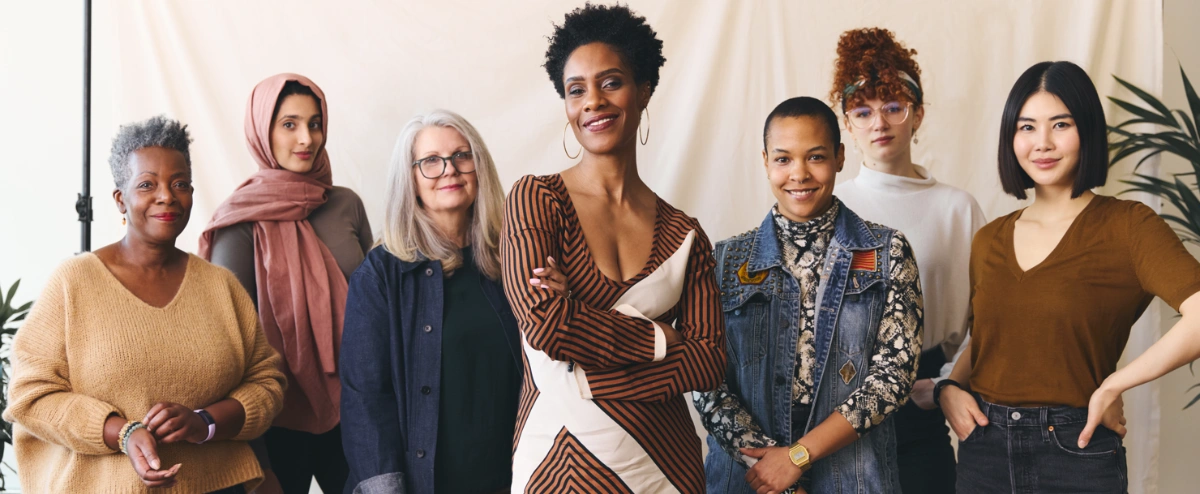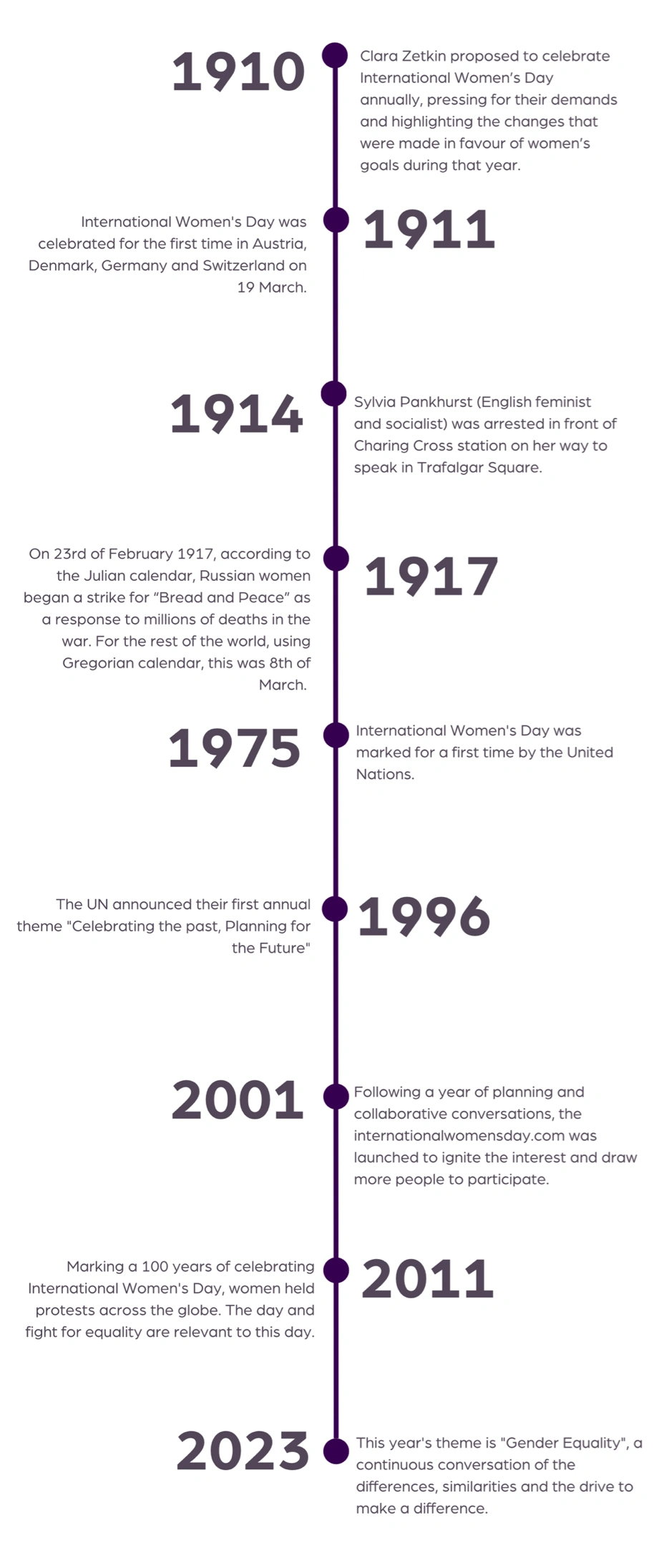
Why do we need International Women's Day?
The first International Women’s Day celebration was held in 1975, the year of freedom and love, although the fight for basic human rights and the independence of women across the globe did not begin then.
Women have been advocating to have their voices heard for hundreds of years - we are looking at centuries of women’s oppression. The last wife-selling auction was held in England in 1913, and up until 1937, women could not have their own passports.
The late 1800s and 1900s were times of large-scale change for women. Prior to that century, women could not vote, travel under their own names and were considered the property of their husbands. A form of this, though not legal, is around to this day, showcasing through domestic abuse and human trafficking.
Officially, the pioneer advocates for the equality of genders were suffragettes. They held meetings underground, slowly shaking down the patriarchy. They were the first wave of feminism, fighting for and gaining the right to vote (1848 – 1920). Second-wave feminism fought for equal work opportunities for women (through the 1960s and 1980s), and third-wave feminism is an extension/continuation of the second wave (starting in the 1990s). Feminism is about highlighting and shining a light on the daily issues women face and working together to close the gender inequality gap.
The history of International Women's Day
We have certainly come a long way since the 1900s, but there is still a long road ahead of us. A hundred years ago, women could not own property on the same terms as men, serve on a jury, open a bank account or apply for a loan, be served a drink unaccompanied or even use the contraceptive pill without her husband’s knowledge.
We encourage you to read through the Internation Women’s Day website for full information here, but as for visual learners, we have created a timeline to summarise key events in the development of International Women’s Day:
The history that shaped International Women's Day
Modern-day gender inequality:
The gender pay gap is an issue to this day, even with regulations in place. A study in 2017 showed that women worked “for free” for 51 days of the year because of unequal pay. To this day, it can be hard for women to live a free, independent life due to the obstacles they face daily. Our leaders also have a pink tax phenomenon where products targeted at women cost more than their alternatives for men and sanitary products can cost a woman with periods up to £492 a year.
The are a lot of cases where a woman is more likely to get diagnosed with an illness much later than a man with the same symptoms. Most health concerns get brushed off for mental instability, and female patients are often gaslit into thinking they’re exaggerating.
Did you know it takes eight years on average for a woman to get diagnosed with endometriosis?
That is eight years from the point of investigation, but imagine how many years the woman may have spent suffering in silence.
Feminists in history:
Discrimination still exists in many forms, even though some justice has been effective. It is important to continue to raise awareness and supply help when needed. A lot of people across the globe keep up the legacy of feminism. Let’s take a look at significant women of history that dedicated their time to ending gender inequality.
- Anna Filosofova
A Russian philanthropist of the 19th century, one of the trailblazers of the women’s rights movement, dedicated her time to helping vulnerable and disadvantaged communities. - Elizabeth Blackwell
A British/American physician of the 20th century was fighting for women with medical backgrounds (e.g. midwives) to become doctors, as at the time, this position was exclusively reserved for men.
- Shirin Ebadi
An Iranian lawyer of the 21st century fighting for democracy and human rights for women, children, and refugees. She was exiled from Iran and now continues her journey in London.
- Rigoberta Menchú
An indigenous woman of the 20th century from Guatemala fighting for her community and her ethnic group. She raised awareness of the effects of violations to her community from a 30-year-long civil war. - Malala Yousafzai
You may have heard of this young and powerful lady of the 21st century from Afghanistan and her accomplishments. At just 18 years old, she was targeted by the Taliban and has high aspirations to become the prime minister of her country someday. A true inspiration for us all.
Acknowledging the wins
By 2024, women’s political representation has grown up to 24.3% of all national parliamentarians. Saudi Arabian women are now legally allowed to drive a car and travel without a male relative’s permission (yes, that was socially acceptable before). Saudi women also no longer need to use separate entrances from men.
Globally, we have witnessed a rapidly progressive fight for women's health rights, especially legalising and de-stigmatising abortions. Some countries have, unfortunately, returned to illegal abortions (or are on their way to), but the action was put in motion - and that’s what’s important.
The government of Ireland has announced the rollout of free period products nationwide, which is so important in the modern world and a very progressive decision.
Child marriage rates have reduced across the globe as well as female genital mutilation by one quarter. It is not ideal results, but there is a change.
Women’s and young girls’ accomplishments are being praised worldwide, forming a strong front line of defence for the fight for freedom and equality.
Celebrating International Women's Day
On this International Women’s Day, let’s remember these great women and our collective accomplishments in the celebration of achievements towards gender equality. Our society has a long way to go, but we are certain we will accomplish our goals in the near future.
In the meantime, why not check out our interview celebrating the careers of our very own Community Fibre female talent? Learn about what helped shape their career paths, what challenges they have overcome and what advice they have for young women joining specialist careers.
Article tags
